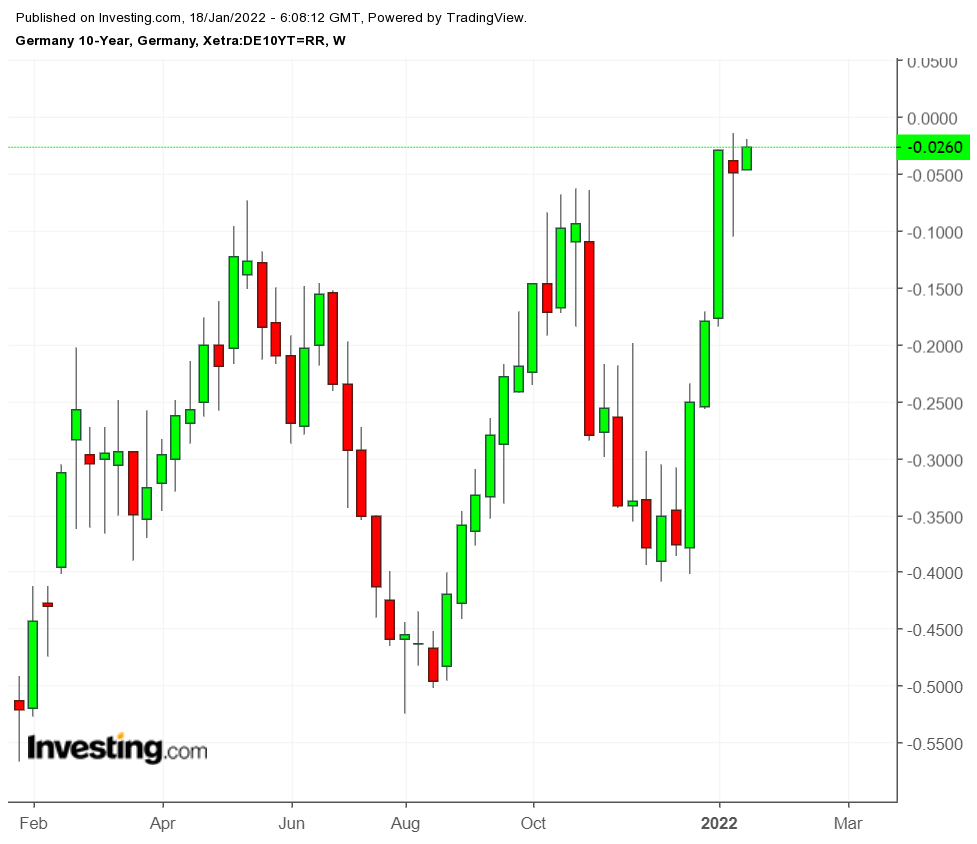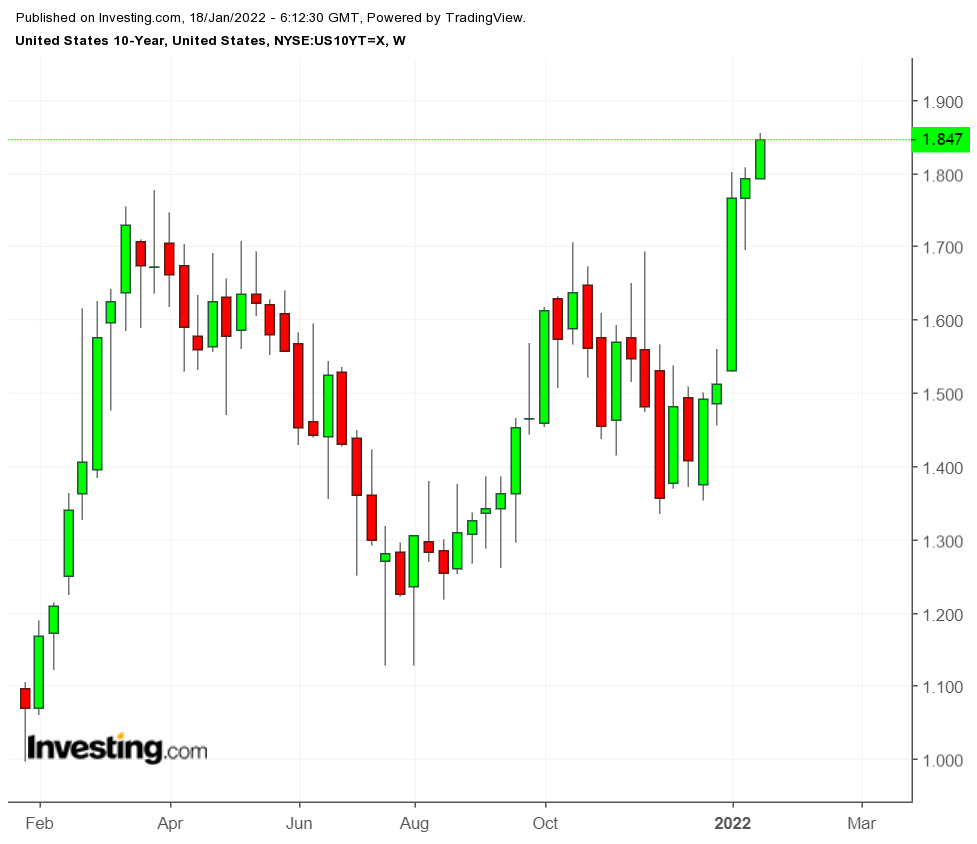European investors are wondering how much pressure monetary tightening in the US will exert on the European Central Bank and on EU sovereign bond yields.
Odds are growing that the Federal Reserve will start raising rates in March and Fed officials are now talking about three or four rate hikes this year.
The last word from the ECB, however, is for no rate hikes this year and the divergence in these approaches raises some questions.
Currency markets are wobbly, but speculative positions in the dollar remain long as traders reckon the Fed rate hikes are already priced into the market.
The closely watched German 10-year bond, a benchmark for the eurozone, registered a slight rise in yield in Monday trading, settling at minus 0.0245%, compared to minus 0.0395% late Friday.

Investors may test a zero yield, but analysts are expecting the German bond yield to show resistance at that level.
Just how far this decoupling will go may depend on inflation expectations in the US as Fed officials seem to still believe that the increase in prices is a transitory phenomenon, even though more intense and longer than they originally anticipated.
Treasury yields are moving higher but investors still seem ready to accept the Fed’s view that inflation will be contained. Yield on the 10-year Treasury note crested 1.8% last week.

Monday was a holiday in the US but the implied yield in futures markets rose to 1.85% and speculative positions are bearish on a net basis.
Considering the year-on-year jump of 7% in the December consumer price index, however, this is a relatively mild increase in yield.
UK, Italian, And French Yields Spike On Political Jitters
UK government bonds are in a special position. The Bank of England bit the bullet and raised its key rate by 15 basis points, to 0.25%, last month. Yield on the 10-year bond has risen more than a percentage point since then, and was at 1.1970% on Monday.
British Prime Minister Boris Johnson is in trouble—a lot of trouble—over allowing parties at his residence at No. 10 Downing Street while everyone else was in lockdown, and then apparently lying about it.
But the preemptive rate hike has put a floor under gilt yields and analysts don’t seem too worried about Johnson’s fate. There are two Conservative Party cabinet members ready to take over—Finance Minister Rishi Sunak and Foreign Minister Liz Truss—and Johnson has gotten out of sticky situations before.
More concerning is the end of quantitative easing in the UK. There is limited issuance this quarter—only £17 billion—but when full-scale issuance resumes in the remaining quarters, there will be no buying from the Bank of England.
Italy is facing a political shakeup this month when parliament votes on a new president, who functions largely as a ceremonial head of state. Prime Minister Mario Draghi is the leading candidate, and the only concern is that his departure as head of government would result in a snap election and a difficult coalition-building.
Yield on the 10-year bond has risen about 40 basis points in recent weeks, to about 1.365% on Monday, but investors don’t seem too worried. Even as president, Draghi will have a lot to say about the formation of a government and Italy has a lot of reasons not to rock the EU boat as pandemic recovery aid flows in.
Similarly, yield on the 10-year French bond has risen in the past few weeks as candidates joust ahead of the presidential election in April. It was near 0.360% on Monday, after briefly dipping into negative territory in December.
President Emmanuel Macron would have little difficulty defeating far-right candidate Marine Le Pen in the runoff second round. The center-right candidate, Valérie Pécresse, who is the head of the capital region Ile-de-France, would present more of a challenge, but there is no guarantee she will make it to the second round. In any case, the return of the Gaullists—now rechristened the Republicans—would not present a major upset.
